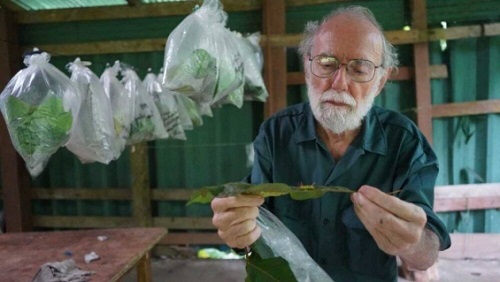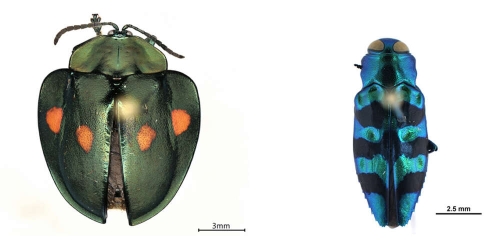A new US$1-million, three-year grant from the
Walder Foundation based in Skokie, Illinois, will enable scientists at U of G and in Costa Rica to continue their DNA barcoding of millions of insect specimens.
The project is also intended to bring “bio-literacy” to the Central American nation and will serve as a test case for conducting large-scale DNA barcoding of organisms in other countries worldwide, said Hebert.
Earlier funding was matched by a grant from the Guanacaste Dry Forest Conservation Fund to provide almost $4 million in Canadian funds for the barcoding effort.
“The Walder Foundation is proud to support the important work of cataloging the incredible diversity of one of the most biodiverse places on Earth,”said Elizabeth Walder, president and executive director of the foundation.
“By using DNA barcoding to better understand species diversity in these precious places, we hope that diversity can be better protected while sustaining the livelihoods of those that depend on it.”
“We’re delighted that the Walder Foundation has further supported this critical project linking the University of Guelph and our partner institutions in Costa Rica,” said Dr. Mazyar Fallah, dean of CBS.
“Not only will this funding allow researchers to continue their work in discovering and cataloguing biodiversity, but it will also enable training of Costa Rican partners and help with wider education of the country’s citizens – key to preserving that biodiversity.”
Project to catalogue biodiversity across Costa Rica

[ Above Photo - Evolutionary ecologist Dan Janzen collecting specimens in Costa Rica ]
Since receiving the initial funding, project researchers have analyzed some two millioninsect specimens mostly from the Area de Conservacion Guanacaste (ACG), a UNESCO World Heritage site in northwestern Costa Rica.
Those specimens included some 50,000 insect species, at least half new to science.
Now scientists aim to widen the project to further catalogue diversity and to learn about the workings of ecosystems across the entire country.
“We’ve done a deep dive into the ACG,”said integrative biology professor Hebert, who developed DNA barcoding technology to distinguish species of living things using their genetic material.“This new round of funding will allow us to probe insect diversity in all of Costa Rica’s eco-regions.”
The project is part of the ambitious BioAlfa initiative launched by two of Hebert’s international collaborators – Dr. Dan Janzen and Dr. Winnie Hallwachs, both biologists at the University of Pennsylvania – to barcode every species in the country.
The wider BioAlfa project is a $100-million initiative announced in 2020 to involve and educate citizens about their nation’s biodiversity. Costa Rica is believed to be home to about four per cent of all species on Earth, said Hebert.
A window onto wider ecosystem workings

[Above Photo - Two beetles, Stolas lebasii and Chrysobothris convexiuscula, collected in Guanacaste, Costa Rica by Daniel Janzen and Winnie Hallwachs]
Hebert said nearby Colombia is looking to begin similar research, and he hopes the work in Costa Rica will spark initiatives in other countries.
More than 1,000 researchers in about 30 countries are already part of a $180-million, seven-year
research program called BIOSCAN that aims to barcode 10 million specimens worldwide by 2026.
Specimens sent from around the globe to U of G are analyzed by powerful DNA sequencers. The resultant genetic information is added to the growing
International Barcode of Life project database held at the University.
Beyond recording biodiversity, said Hebert, barcoding is helping researchers learn more about ecosystem workings. In Costa Rica, for example, pineapple growers learning of pesticide impacts on insect diversity in their fields are looking at more “eco-sensitive” farming methods, including organic, sustainable agriculture.
“Our work is developing an approach that will advance understanding of the scale and causes of biodiversity shifts globally,” said Hebert.



